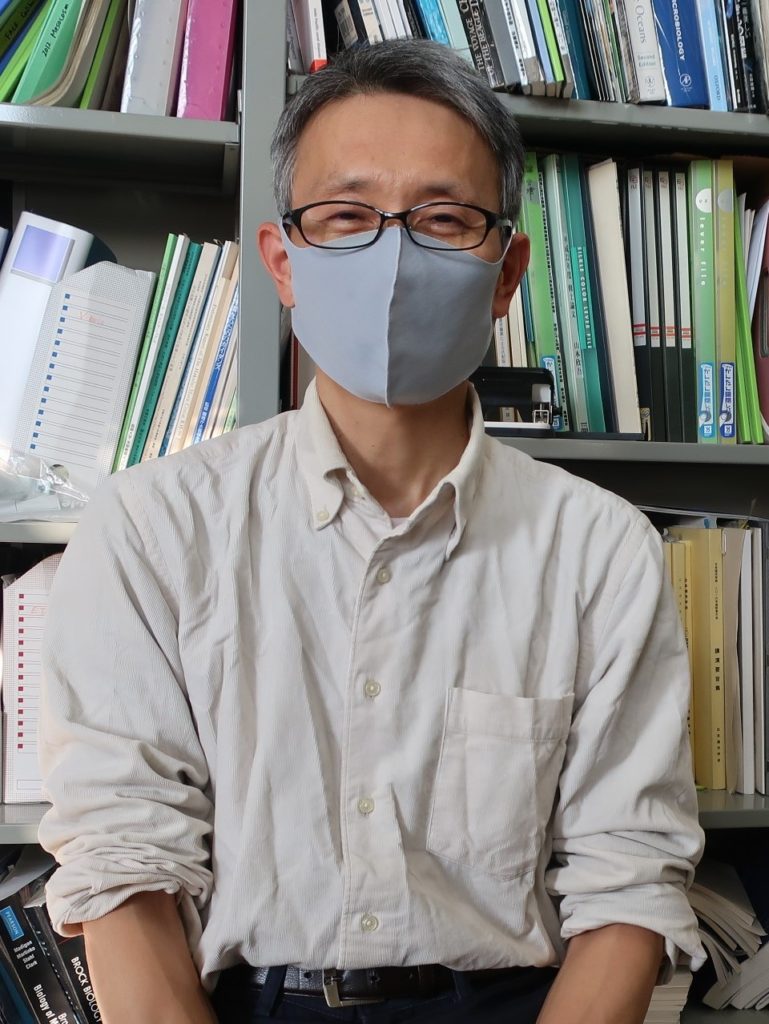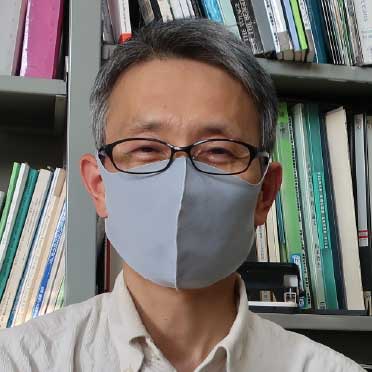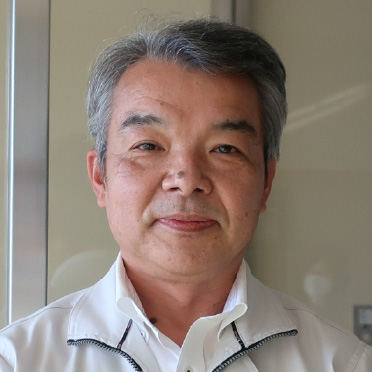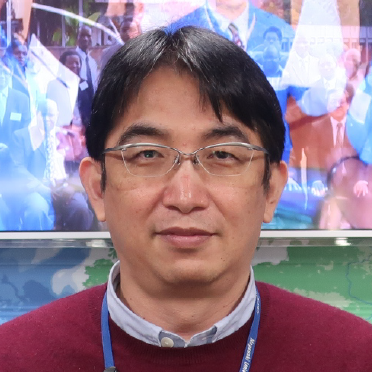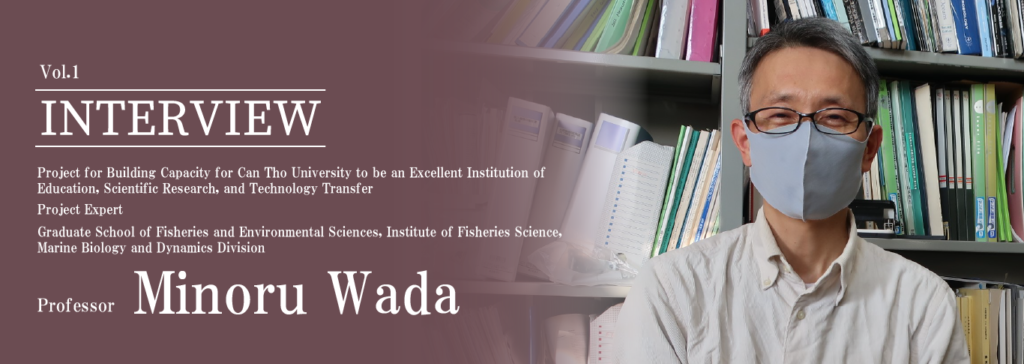
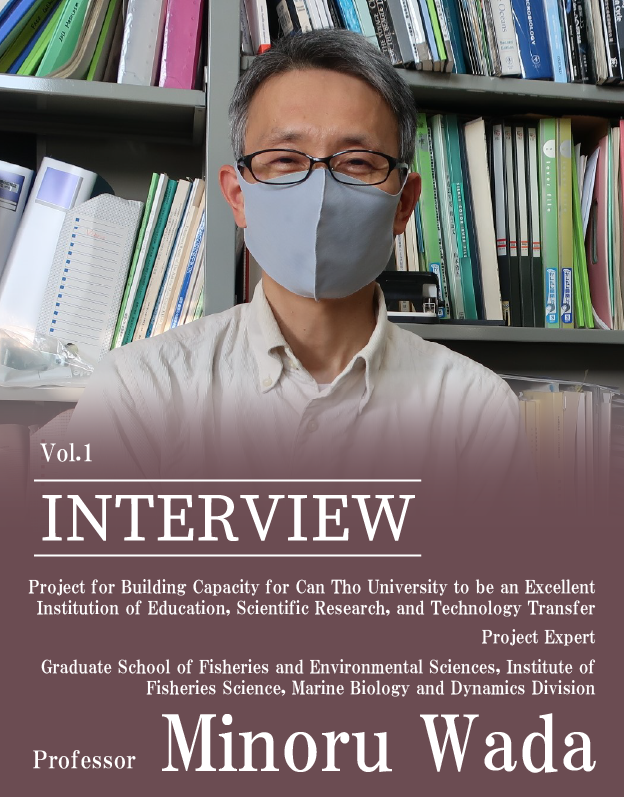
The Project for Building Capacity for Can Tho University to be an Excellent Institution of Education is being implemented in Vietnam from 2016 to March 2020.
We interviewed Professor Minoru Wada of the Graduate School of Fisheries and Environmental Sciences, who is working as an expert on this project, about the project initiatives and current state of affairs.
――This project aims to enhance the research and educational capacity of Can Tho University in the fields of agriculture, fisheries and aquaculture, and environmental studies.
How did you come to join the project as an expert, Professor Wada?
Prof. Wada: I was invited by Professor Emeritus Atsushi Ishimatsu of the Organization for Marine Science and Technology at Nagasaki University, but before that, I traveled to the Mekong Delta region of Vietnam for the first time in May 2011 as a member of the overseas academic research team funded by a Grant-in-Aid for Scientific Research.
At the time, Professor Ishimatsu was the first Nagasaki University researcher to conduct research with Can Tho University’s College of Aquaculture and Fisheries, and Dr. Tran Dac Dinh, who was our contact point at Can Tho University, took me to various places.
I was interested in the fact that there was a place along the Mekong River where we could sample the diversity of gobies and that one type of goby, the pointed-finned goby, was being cultured there.
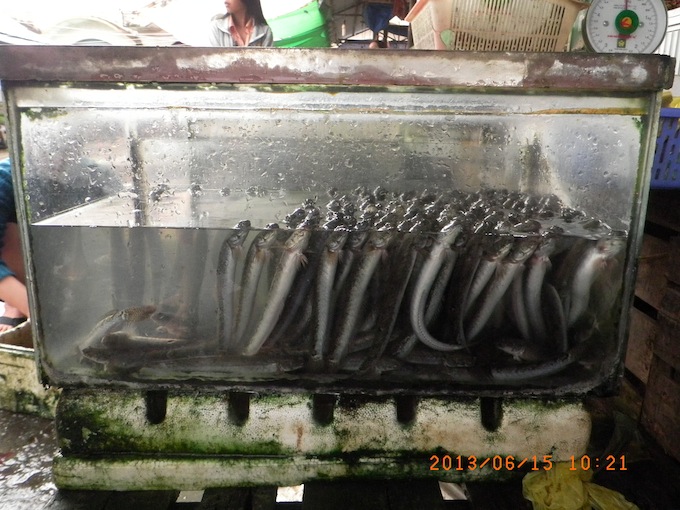
Prof. Wada: In contrast to catfish, which is the mainstay of Vietnam’s seafood exports to Europe, the pointed-finned goby is sold in town markets as a hot pot ingredient; it is the soul food of the people of the Mekong Delta. The method of cultivating the pointed-finned goby is very simple.
All you have to do is make a hole in the ground, fill it with water from the Mekong River, and then feed the fish fry.
The pointed-finned goby breathes on the surface of the water, so even if the water is dirty and there is little air, the fish can still breathe by poking its face above the surface.
Therefore, even if the water is murky and green due to an abnormal growth of algae, they can still be cultured without having to control the water quality.
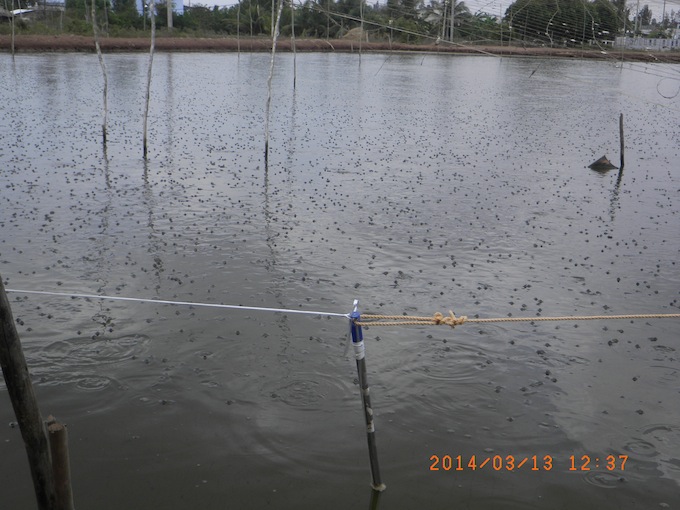
Prof. Wada: I completed this research in 2013, but after this project started, I ended up joining in a fisheries sub-project with Professor Ishimatsu through my connection with my counterpart from Can Tho University, Dr. Dinh.
――Nagasaki University is one of nine core supporting universities for this project. What role does it play?
Prof. Wada: Nagasaki University is a member of the Domestic Support Committee as one of the nine core supporting universities (the other universities are Hokkaido University, the University of Tokyo, Tokyo University of Marine Science and Technology, Tokyo University of Agriculture and Technology, Kyoto Institute of Technology, Osaka University, Kyushu University, and Kagoshima University).
In FY2019, Associate Professor Hironori Hamasaki (Graduate School of Fisheries and Environmental Sciences) joined the Technical Committee in the field of agriculture, and I am participating in the Technical Committee in the field of fisheries and aquaculture.
Prof. Wada: Faculty members from the Nagasaki University Graduate School of Fisheries and Environmental Sciences are currently participating 35 research projects funded with yen loans, which is one of the activities of this project. Eight of these projects are in the fisheries and aquaculture field and 12 are in the environmental studies field.
As a part of our human resources development initiative, we have accepted six master’s students and 33 doctoral students so far.
In addition, faculty and staff members from Can Tho University visited Nagasaki, and in total, 52 short-term trainees have studied at Nagasaki University.
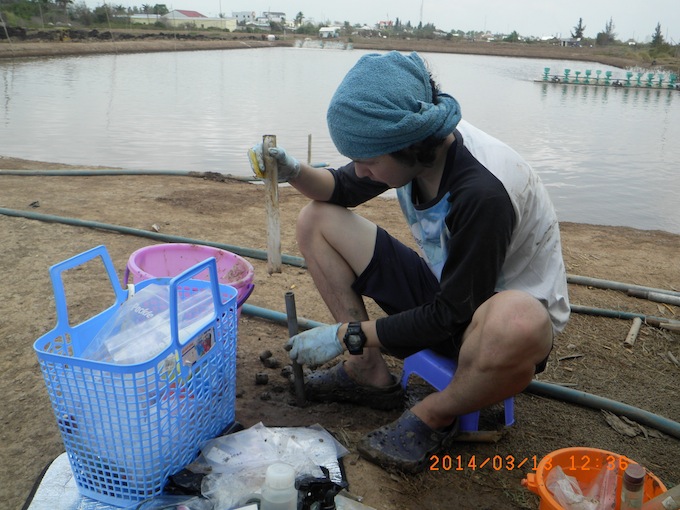
――What were some of the difficulties you have faced in continuing this project in Vietnam?
Prof. Wada: While not related to this project, there was an ongoing research project funded by a Grant-in-Aid for Scientific Research in Bac Lieu Province, which is further south than Can Tho University. That region is home to a large concentration of pointed-finned goby farms. We had conducted several field surveys in the area up through 2013 and wanted to continue our research in the same place.
However, in 2014, our counterparts suddenly informed us that the surveys could not be continued.
They said the local government was not happy having foreign researchers conducting surveys in the area, but we don’t know the actual reason.
In this way, access to the field can be suddenly cut off due to various local circumstances, and I found this difficult.
Prof. Wada: In terms of this project, I review and comment on the project initiatives as a Japanese expert, but my feedback is not always put into practice because priority is given to what our counterparts want to do and what they want to research.
The research that Professor Emeritus Ishimatsu was conducting was bottom-up, and he was able to get results by working hard to communicate the aims of the research to his local counterparts.
In national projects, on the other hand, the circumstances of the partner country are largely reflected in the projects, so it can be difficult to make compromises and decide how to run the projects.
That being said, I still find the diversity of Mekong delta highly fascinating.
I hope to continue using the outcomes of this project to promote education and research activities.
――This project is scheduled to conclude in March 2020. What is your outlook for the future?
Prof. Wada: Under this project, we are conducting 36 joint research projects in the fields of agriculture, environmental studies, and fisheries, and while some of these have already concluded, some are scheduled to conclude by the end of 2020 and some will continue until October 2021.
Over the past five years, great progress has been made in improving the facilities, equipment, research, and education of Can Tho University.
Going forward, I think efforts will be needed to further improve the quality of research and education.
Because overseas travel was restricted in FY2020 due to the COVID-19 pandemic, some of the project activities have been delayed, so we expect to receive some kind of extension on the project.
In addition, the Keidanren Committee on Nature Conservation is providing support to the Mekong delta region to trial activities aimed at invigorating ecotourism in nature conservation areas, and Associate Professor Yuzuru Utsunomiya of the Faculty of Economics is involved in this project.
Likewise, students from the volunteer group Nagasaki Kaientai and students from Can Tho University are participating in an ongoing survey of garbage drifting in tidal flats and mangrove forests.
This initiative will end in fiscal 2020, but we hope there will be a possibility to implement this project in the future.

